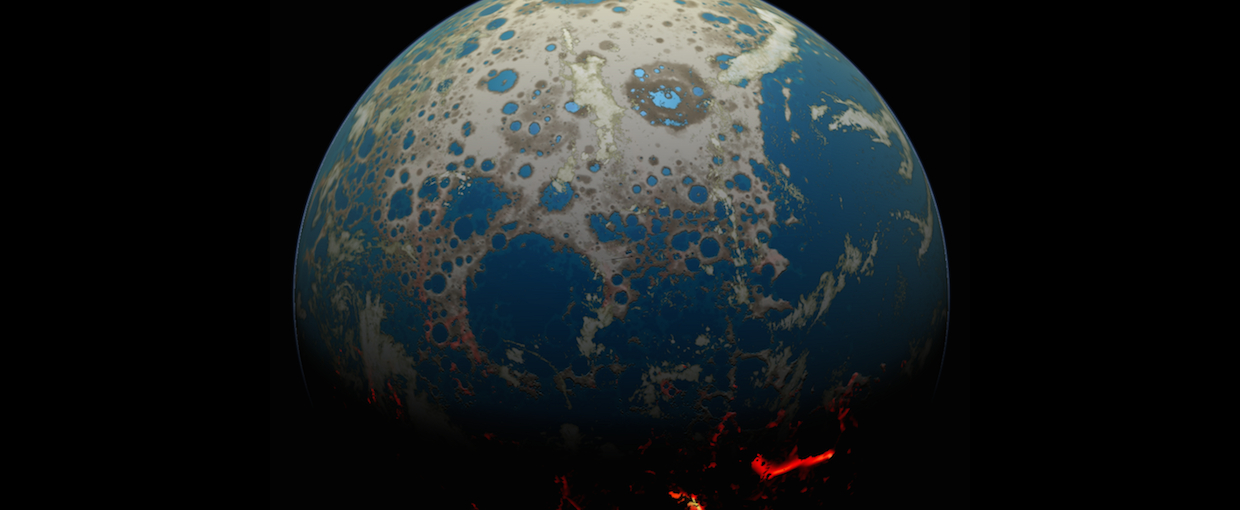-
Early Earth, Warm or Cold?
October 17, 2017 / Written by: Aaron Gronstal
Artist concept of the early Earth's surface.
The early Earth was a hellish place, pummeled by meteors and a choking atmosphere, and yet somehow life got a grip there.Scientists have used a 3-D climate-carbon model to provide new insights about the temperature of the Earth at the time of life’s emergence on our planet. There are many important questions concerning the climate of the Earth at this time, included whether the planet was warm or cold. The temperature of the early Earth is critical to understanding the conditions under which the origins of life could have occurred.

When haze built up in the atmosphere of Archean Earth, the young planet might have looked like this artist’s interpretation — a pale orange dot.The study, “A warm or a cold early Earth? New insights from a 3-D climate-carbon model,” was published in the journal Earth and Planetary Science Letters. The research was supported by NASA Astrobiology through the Exobiology & Evolutionary Program and the Virtual Planetary Laboratory node of the NASA Astrobiology Institute (NAI). Lead author, Benjamin Charnay was also supported as a 2016 Astrobiology Fellow for the NASA Postdoctoral Program.
Source: [Earth and Planetary Science Letters]
- The NASA Astrobiology Institute Concludes Its 20-year Tenure
- Global Geomorphologic Map of Titan
- Molecular Cousins Discovered on Titan
- Interdisciplinary Consortia for Astrobiology Research (ICAR)
- The NASA Astrobiology Science Forum Talks Now on YouTube
- The NASA Astrobiology Science Forum: The Origin, Evolution, Distribution and Future of Astrobiology
- Alternative Earths
- Drilling for Rock-Powered Life
- Imagining a Living Universe
- Workshops Without Walls: Astrovirology